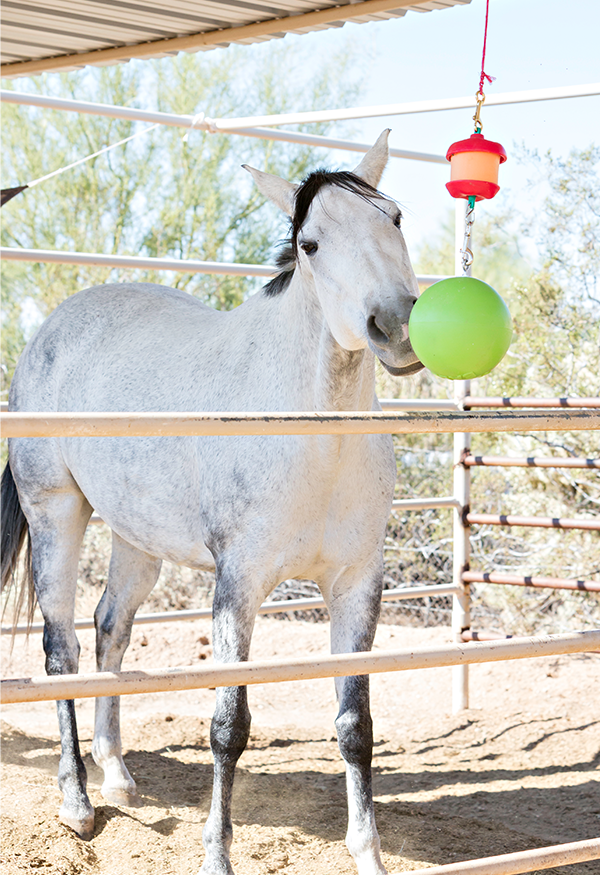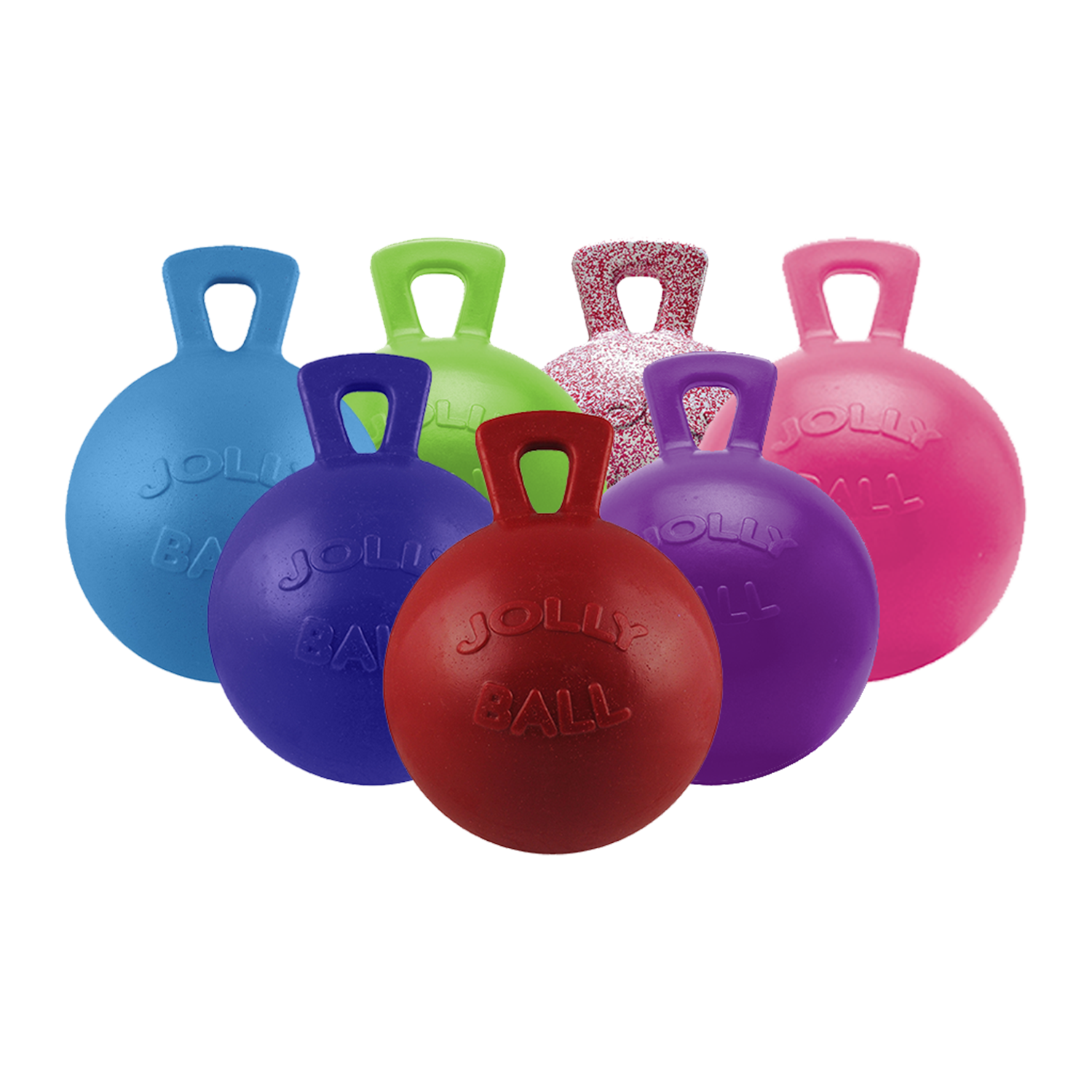Your Cart is Empty
FREE Economy Shipping on orders over $75
Menu

FREE Economy Shipping on orders over $75
The Power of Play - How Toys Improve Your Horse's Life
February 19, 2025 2 min read

Author: Deb Torraca | DPT, MSPT, CCRP, CCAT, CCMT, Board Certified Clinical Specialist in Orthopaedic Physical Therapy Emeritus, Fellow IAVRPT
When people think of horses, they often imagine a majestic animal grazing in a lush green field, bathed in the golden light of a setting sun. Horses naturally enjoy grazing, socializing with both human and animal companions, and soaking up the warmth of the sun. As owners and caregivers, we focus on their essential needs—proper nutrition, exercise, veterinary care, farrier attention, grooming, and plenty of love. But what about play?
Enrichment, including mental and physical stimulation, is vital for a horse’s overall well-being, helping to prevent boredom and behavioral issues. Play is a crucial aspect of a horse’s life, enhancing their quality of life in many ways. Yet, it’s something we may not always consider as part of their daily routine for various reasons.

Modern horse management practices often restrict turnout, limiting a horse’s ability to forage continuously, play, and engage in enrichment activities. Additionally, concerns about injury may further discourage natural play behaviors. However, with the right enrichment strategies, horses can safely engage in play, promoting physical and mental well-being.
Research has shown that play is essential for horses, benefiting their musculoskeletal and mental health while enhancing their social and survival skills. Additionally, play helps alleviate boredom and supports enrichment activities.
Social play with other horses and animals is essential for a horse’s well-being. Environmental enrichment can also be provided through stable and paddock toys such as large balls, food puzzles, stuffed animals, tug toys, and other interactive items. Just as humans and dogs require enrichment to stay mentally and physically healthy, horses also need regular stimulation to thrive. While it is widely recognized that humans engage in puzzles, games, and social activities to prevent boredom, and dogs benefit from interactive toys and training to stay engaged, the same principle applies to horses.

Without proper enrichment, horses can develop stress-related behaviors such as cribbing or excessive pacing. Providing stable and paddock toys, social play, and problem-solving activities ensures that horses, like humans and dogs, remain mentally sharp, emotionally balanced, and physically active. Recognizing this need helps create an environment where horses can lead healthier, more fulfilling lives.
Interestingly, horses have a significantly underdeveloped prefrontal cortex—the region in humans associated with complex thought processes. This suggests that horses rely on different brain areas to achieve similar cognitive outcomes through play. Observing horses engage with these objects reveals not only their enjoyment but also their ability to problem-solve during play.
Incorporating play and enrichment activities into a horse's daily routine is not just a luxury but a necessity for their overall well-being. By providing opportunities for mental and physical stimulation, we can help our horses lead healthier, happier lives. Whether through social interactions, engaging toys, or problem-solving activities, enrichment ensures that horses remain mentally sharp, emotionally balanced, and physically active. As caregivers, it is our responsibility to recognize and fulfill this need, creating an environment where our horses can truly thrive. By prioritizing enrichment, we not only enhance their quality of life but also strengthen the bond we share with these magnificent creatures.
HAVING A JOLLY GOOD TIME?
Keep the good times going! Sign up to receive monthly treats directly to your inbox!

TAKE 10% OFF
Signup for emails and take 10% off your first order!

















